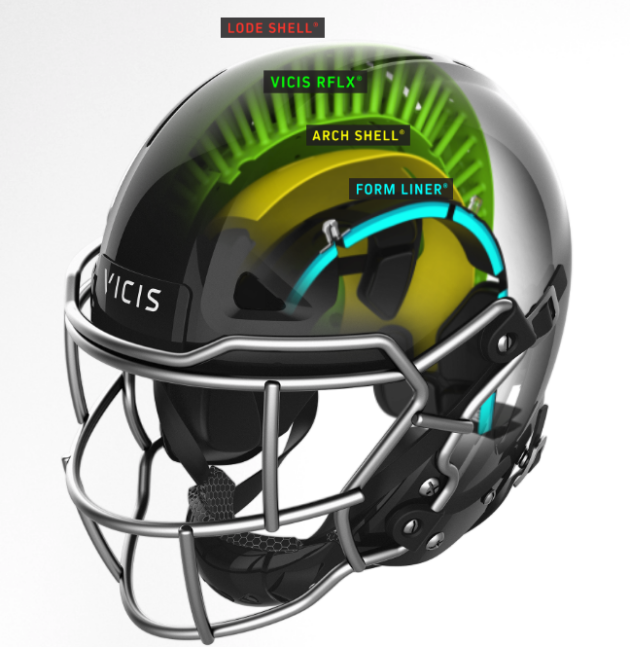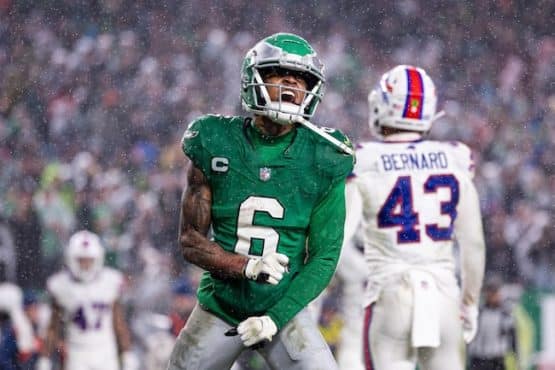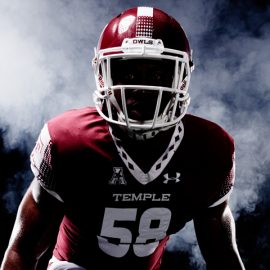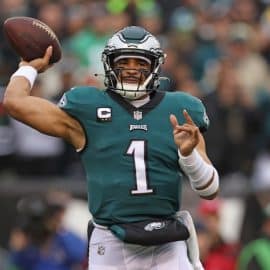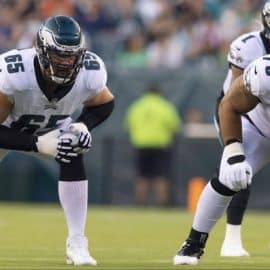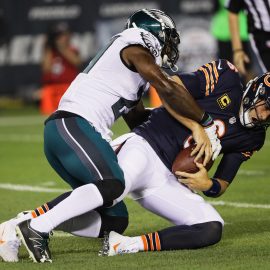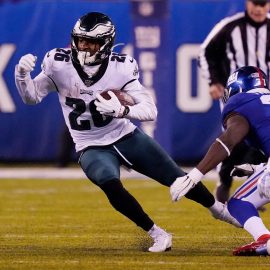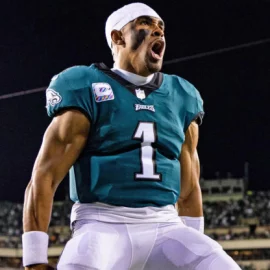There’s been a lot of talk over the past few years about improving football helmet technology. The extreme anti-concussion movement has been pushing the “Alaska”-style helmet which basically features an air-bag membrane covering the entire perimeter of the bonnet. This would be an excellent fashion accessory for our great Gatekeeper Brizer, whose massive brain requires a little more “cushion for the pushin'”. But for mere mortals playing the game, massive bonnets akin to the Alaska model might seem unwieldy at best. At worst, imagine a skull cap so big that you could be tackled by the head!
Welp, there has been a marriage of safety and practicality a-brewing, and this is the latest model of anti-concussion helmet which is gaining traction enough that the Eagles are going to use it:
Vicis now makes the safest helmet in football. And the Eagles are all in on it.
That’s the safety-rating verdict from the NFL, which ranked the Seattle startup helmet manufacturer atop its 2018 Helmet Laboratory Testing Performance Results.
The league worked with the NFL Players’ Association and its biomechanical experts to assess 34 helmet models made by six companies that could be worn in the upcoming 2018 season and determine which was best at reducing head impact severity experienced by NFL players on the field.
The 2018 version of Vicis’ ZERO1 helmet ranked No. 1. The 2017 version finished second. Vicis ranked No. 1 last year, too, in the same test.
The NFL notes that this study is one component of a player’s assessment when picking a helmet; other factors like fit, player position, and past medical history also contribute to the decision. The league added that the “top performing group” on the list, which includes 15 other helmets from Schutt, Xenith, and Riddell, “consists of helmets whose performance was not statistically different from the two top-ranked helmets.”
This year’s list also includes ten “prohibited helmets” — six that are prohibited immediately, and four that are disallowed for new NFL players and players who did not wear the helmets last season.
“In previous seasons, NFL players could choose any helmet as long as the helmet passed current National Operating Committee on Standards for Athletic Equipment (NOCSAE) certification standards,” the NFL said in a statement. “The prohibited helmets perform poorly in laboratory testing, have been discontinued by the manufacturer, or were produced by companies no longer manufacturing football helmets.”
The test was specifically designed to simulate NFL conditions and isn’t meant to be applied to collegiate, high school, or youth football.
The NFL and football itself has come under the microscope in recent years for concussions and other head-related injuries caused by the violent nature of the sport. Reported concussions in the NFL continue to rise, reaching 281 last season, the highest in five years.
The NFL reached a $1 billion concussion settlement in 2017; the league is now dealing with alleged “fraudulent schemes by doctors, lawyers and players to illicitly tap the uncapped fund,” The Wall Street Journal reported last week.
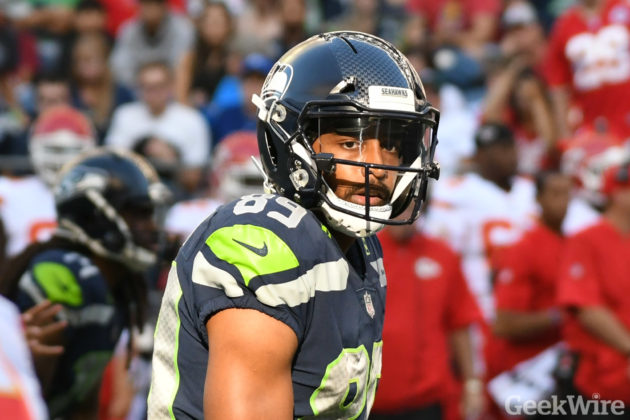
The Vicis helmet features a unique outer shell material and flexible interior columns designed to mitigate the forces thought to cause concussions. It retails at $950 — down from its original $1,500 price — and players from 18 NFL teams wore the helmet last season, in addition to hundreds of athletes from top college programs. The helmet was one of Time Magazine’s 25 Best Inventions of 2017.
Vicis is also targeting younger athletes. More than 400 high school programs have signed up to have players wearing the ZERO1 for this upcoming 2018 season.
Vicis originally spun out of the University of Washington in 2014. The 85-person company has raised $50 million to date from investors like Seahawks quarterback Russell Wilson; prominent spine and neurological surgeons; Cincinnati Reds minority owner Harry Fath; angelMD; W Fund; Alliance of Angels; and Trilogy Equity Partners.
Vicis is led by CEO Dave Marver, a medical device and industry veteran; CTO Per Reinhall, head of the UW’s mechanical engineering department; and Chief Medical Officer Samuel Browd, medical director of Seattle Children’s Hospital Sports Concussion Program.
I will sentimentally miss the old “Riddell” nameplate on the front of the Eagles’ helmets. But if “Vicis” means a safer, more effective protection device in place for our guys, I’m totally on board…er, Bored.
Add The Sports Daily to your Google News Feed!
